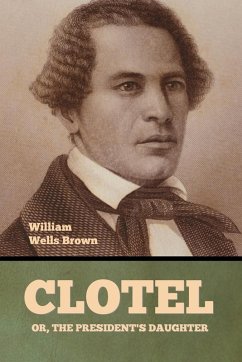Clotel; or, The President's Daughter: A Narrative of Slave Life in the United States is an 1853 novel by United States author and playwright William Wells Brown about Clotel and her sister, fictional slave daughters of Thomas Jefferson. Brown, who escaped from slavery in 1834 at the age of 20, published the book in London. He was staying after a lecture tour to evade possible recapture due to the 1850 Fugitive Slave Act. Set in the early nineteenth century, it is considered the first novel published by an African American and is set in the United States. Three additional versions were published through 1867. The novel explores slavery's destructive effects on African-American families, the difficult lives of American mulattoes or mixed-race people, and the "degraded and immoral condition of the relation of master and slave in the United States of America." Featuring an enslaved mixed-race woman named Currer and her daughters Althesa and Clotel, fathered by Thomas Jefferson, it is considered a tragic mulatto story. The women's relatively comfortable lives end after Jefferson's death. They confront many hardships, with the women taking heroic action to preserve their families. In addition to being the first novel published by an African American, Clotel became a model that influenced many other nineteenth-century African-American writers. It is the first instance of an African-American writer "to dramatize the underlying hypocrisy of democratic principles in the face of African American slavery." Through Clotel, Brown introduces into African-American literature the "tragic mulatto" character. Such characters, representing the historical reality of hundreds of thousands of mixed-race people, many of them slaves, were further developed by "Webb, Wilson, Chesnutt, Johnson, and other novelists", writing primarily after the American Civil War. (wikipedia.org)
Hinweis: Dieser Artikel kann nur an eine deutsche Lieferadresse ausgeliefert werden.
Hinweis: Dieser Artikel kann nur an eine deutsche Lieferadresse ausgeliefert werden.








